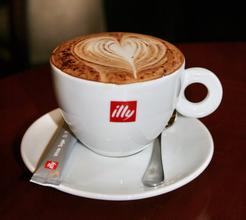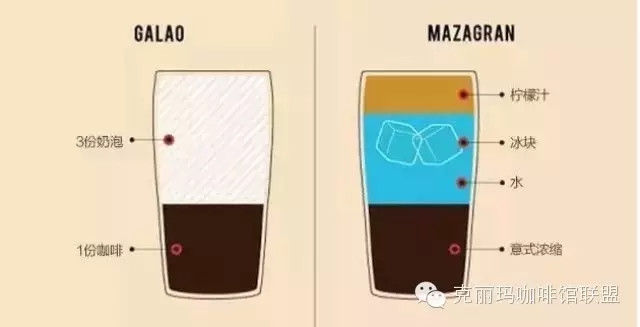Wiesbaden, Germany, opened a new unique cafe, what is the price per hour?

Recently, a new cafe, Slow Time, has been opened in Wiesbaden, Germany. The cafe, which focuses on "slow time", is unconventional in that it does not check out according to the menu, but charges according to the length of time customers spend in the store.


There, all coffee, tea and refreshments are free, and customers can take whatever they want. You can even bring your own food and drinks or order a take-out pizza to the store without paying extra service charge. But before you leave the cafe, you have to pay for every minute you spend there. It can be said that Slow Time well confirms the old proverb: "time is money".

Slow Time's billing method is very simple. According to The Local, when you enter the cafe, the service staff will wear a colored wristband with the exact time when you arrive at the cafe as a basis for checkout time. There is a flat charge of 2 euros (about 9.4 yuan) for the first half hour and 0.05 euros or 3 euros (about 14 yuan) per minute after half an hour.

This billing method obviously reminds people of the close relationship between time and money. But Daria Volkova, 24, the founder of Slow Time Cafe, deliberately hung several clocks in the shop and set a different time for each clock. Daria hopes that everyone who comes here can forget the time for a while, relax their nerves and enjoy a leisurely time alone or with others. "this is a better place to meet friends than a bar. There is no expensive alcohol consumption here, it is simple and affordable. " Daria said.
In addition to the unique billing method, Slow Time can be said to be like the name of the store, the decoration and layout of the store is full of "slow time" style. Delicate little candles with a glimmer of light, neat books, soft and comfortable sofa chairs, and even home slippers for customers to change. The 75-square-meter Slow Time is like a public living room where you can read books, play board games, surf the Internet with free WiFi, or just choose a window location to bask in the sun. Escape from the hasty pace of the city and spend money to enjoy a slow time, which is the idea advocated by Slow Time.

Der Spiegel reported that the concept of "time Cafe" originated in Moscow and has successful examples, such as Babochki Anticaf é in Moscow.
In fact, there is an hourly cafe called Urban Station in Buenos Aires, Argentina. However, Urban Station's target customers are relatively clear, mainly aimed at mobile office workers (mobile workers), so in addition to regular drinks and snacks, there are printers, fax machines and other office equipment for guests to use.

Since its operation in mid-April, Slow Time, which is billed on time, is still in a break-even state. It can hold 25 people at the same time, but 11 customers must come in the same hour for the store to make a profit. But Daria is confident about the future of the cafe. She believes that as time goes on, more and more people will be aware of the existence of Slow Time and will understand and accept the new concept of time Cafe. To this end, she also put up two posters in front of the store to interpret "time Cafe." Meanwhile, Daria is planning to add some weekend activities, such as holding small concerts to attract customers.
On Slow Time's official Facebook account, many netizens praised the new concept cafe. Obviously, for cafes, charging on time can allay the store's worry about the turnover rate, but the longer the customer stays, the better. But for some friends who like to order a cup of coffee and spend the whole afternoon in a cafe, it may not be a bargain.

A recent online survey on the Huffington Post website showed that 65.4% of respondents were still more likely to pay for coffee, while only 34.6% were more willing to pay for the time spent in the cafe.
The final success of Slow Time's business model depends on the test of waiting time. Would you like this "pay-as-you-go" cafe?
This article is reproduced from 21CBR
Important Notice :
前街咖啡 FrontStreet Coffee has moved to new addredd:
FrontStreet Coffee Address: 315,Donghua East Road,GuangZhou
Tel:020 38364473
- Prev

Illy Coffee Fine Coffee introduction to illy Coffee Brand Culture
The soul of Italian coffee lies in its coffee bar, hundreds of years of tradition, combined with the expertise and low-key elegance of modern baristas. If you've ever had the privilege of enjoying real Italian coffee, close your eyes and bring yourself back to that experience! This is the experience that Italian hopes to share with the world, and such a wish gives birth to Italian Immanuel.
- Next

World Coffee | the ordering guide of cafes in various countries makes you more compelling!
I believe that all coffee lovers who love to travel have also encountered such an awkward situation: when you are in a foreign land, you come to a cafe and are at a loss when you look at the menu full of foreign languages, so you have to look at the waiter helplessly and point to the coffee machine. Hope to get a cup of coffee that is at least hot and drinkable. I guess not many people can really tell the difference between Cafe au lait (French coffee with milk).
Related
- What brand of black coffee is the most authentic and delicious? what are the characteristics of the flavor of the authentic Rose Summer Black Coffee?
- Introduction to the principle and characteristics of the correct use of mocha pot A detailed course of mocha pot brewing coffee is described in five steps.
- Which is better, decaf or regular coffee? how is decaf made?
- How much is a bag of four cat coffee?
- How about four Cat Coffee or Nestle Coffee? why is it a cheap scam?
- Which is better, Yunnan four Cats Coffee or Nestle Coffee? How about cat coffee? is it a fake scam? why is it so cheap?
- How about Cat Coffee? what grade is a hoax? which instant coffee tastes better, four Cat Coffee, Nestle Coffee or G7 coffee?
- Process flow chart of coffee making-Starbucks coffee making process what coffee tastes good at Starbucks
- The top ten best coffee beans in the world Rose summer coffee or Tanzanian coffee tastes good
- Yunnan four cat coffee is good to drink?_four cat coffee is a big brand? four cat blue mountain coffee is fake?

